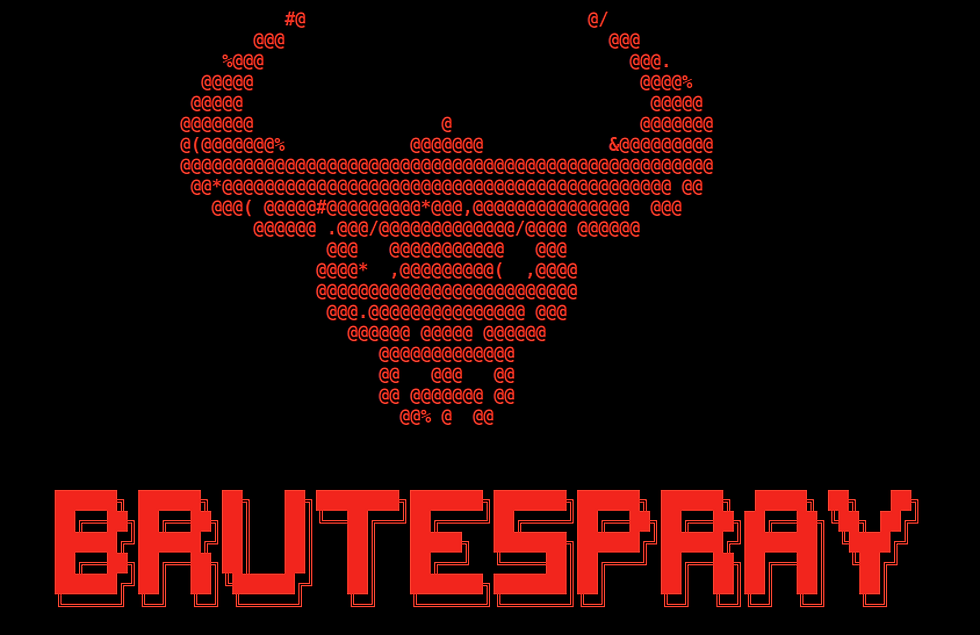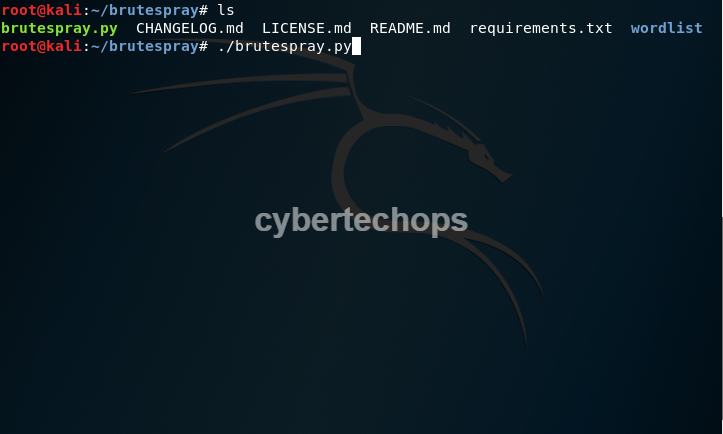Brutespray – Port Scanning and Automated Brute Force Tool
- Security Unleashed

- Oct 18, 2018
- 1 min read

BruteSpray takes nmap GNMAP/XML output and automatically brute-forces services with default credentials using Medusa. BruteSpray can even find non-standard ports by using the -sV inside Nmap.
Installation
Download from :
https://github.com/x90skysn3k/brutespray.git
pip install -r requirements.txt
On Kali:
apt-get install brutespray
Usage
First do an nmap scan with -oG nmap.gnmap or -oX nmap.xml.
Command: python brutespray.py -h
Command: python brutespray.py --file nmap.gnmap
Command: python brutesrpay.py --file nmap.xml
Command: python brutespray.py --file nmap.xml -i

Attackers Machine(Kali Linux 2.0)
execute command ./brutespray.py python script with 777 Permissions ( read,write,execute)

Scanning victim website
Start scanning your victim website or internal network with Nmap to check open ports and services.
Below Image illustrate Nmap scan followed by saving an output of nmap results with a filename.
Command executed: nmap –vv -n -oA Outputfilename
Here -oA is Output in all formats(.xml,.gnmap,nmap)

Nmap Output Mode
Previous Nmap scan will be saved in the .xml format as an output file.
This Output file (XML FILE) used to perform brute force attacks against open ports of the victim.
Below image illustrate Nmap scan output file as cybertechops.nmap

Examples
Using Custom Wordlists:
python brutespray.py --file nmap.gnmap -U /usr/share/wordlist/user.txt -P /usr/share/wordlist/pass.txt --threads 5 --hosts 5
Brute-Forcing Specific Services:
python brutespray.py --file nmap.gnmap --service ftp,ssh,telnet --threads 5 --hosts 5
Specific Credentials:
python brutespray.py --file nmap.gnmap -u admin -p password --threads 5 --hosts 5
Continue After Success:
python brutespray.py --file nmap.gnmap --threads 5 --hosts 5 -c
Use Nmap XML Output
python brutespray.py --file nmap.xml --threads 5 --hosts 5
Interactive Mode
python brutespray.py --file nmap.xml -i

Supported Services
ssh
ftp
telnet
vnc
mssql
mysql
postgresql
rsh
imap
nntp
pcanywhere
pop3
rexec
rlogin
smbnt
smtp
svn
vmauthd
snmp




Comments